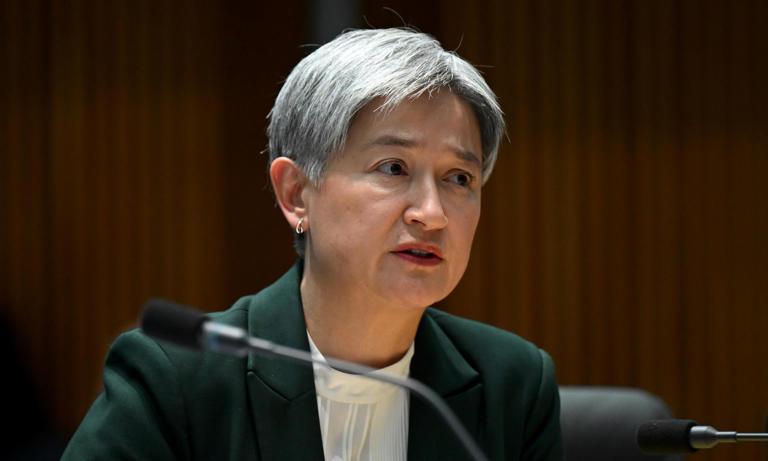Reply To:
Name - Reply Comment

It’s an issue that has sparked domestic and international debate and helped fuel the defection of Fatima Payman from the Labor party.
Now, newly obtained internal documents shed light on the Australian government’s conditions for recognising the state of Palestine – and the factors it weighed up before voting “yes” in a highly anticipated UN vote on 10 May.
Guardian Australia can reveal the government never seriously considered voting against a move to boost the status of the Palestinian mission to the UN – but it was at pains to stress that this was not the same as recognising its statehood.
In the lead up to the general assembly vote in New York, officials told the foreign affairs minister, Penny Wong, that they believed “yes” or “abstain” were the two viable options “open to Australia”.
“A ‘yes’ vote would align us with most of the international community but come at a time the Palestinians are divided,” the Department of Foreign Affairs and Trade said in its formal advice to Wong.
The advice, obtained under freedom of information laws, explained that the Palestinian Authority had asked the UN secretary general on 2 April to reopen its 2011 application for full UN membership.
The advice said full membership could not happen without approval of the more exclusive UN security council, but the US had already used its veto at that forum to scuttle the latest bid. The broader UN general assembly was to consider the issue at an emergency special session.
The Dfat advice recommended that Wong “note that the two options we consider open to Australia on the upcoming UNGA vote on Palestinian membership of the UN are: to abstain; or to vote ‘yes’ accompanied by an explanation of vote possibly stating that our vote in favour should not be construed as formal recognition of a Palestinian state”.
That indicates an active “no” vote – the position held by the US and Israel – was not seriously considered. Just nine countries actively voted against the resolution.
The documents suggest the situation remained fluid as international negotiations continued to find amendments to address concerns raised by some countries, including Australia, about the scope of the wording.
At 8pm on 9 May, the evening before the vote, a senior adviser in Wong’s office circulated to the department what he described as “*very* quickly drafted” alternative options for speeches explaining Australia’s position.
The adviser emphasised that these draft speeches were open for input from officials, saying “normally we would spend more time on this but we don’t want to limit Dfat’s opportunity to review”.
He added: “I expect people will have plenty to say so don’t hold back.”
Australia ultimately voted “yes” to what it characterised as a “modest” extension of rights to the Palestinian mission to the UN, after the wording of the proposed motion was watered down.
It was among 143 UN general assembly members to pass the resolution calling on the security council to reconsider granting full membership to Palestine.
Australia voted the same as close partners France, Japan, South Korea and New Zealand, but not the UK, Canada and Germany, which abstained.
The decision attracted domestic political criticism from the Coalition, which said the resolution sent “a shameful message that violence and terrorism get results ahead of negotiation and diplomacy”.
The Coalition’s foreign affairs spokesperson, Simon Birmingham, accused the government of lacking “the courage to stand against pressure”.
At the time of the vote, the government also flagged a subtle shift in its position on recognising Palestine as a state. It made clear that Australia “no longer believes recognition can only come at the end of a peace process - it could occur as part of a peace process, when we think the time is right”. (Courtesy Guardian Australia)
